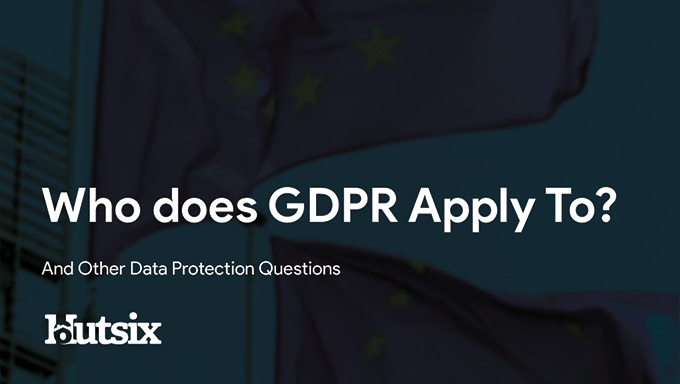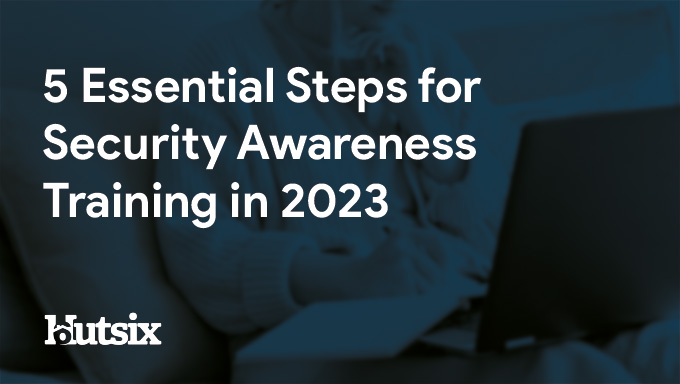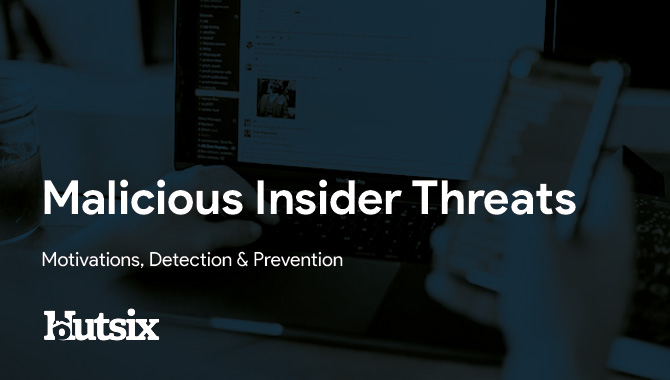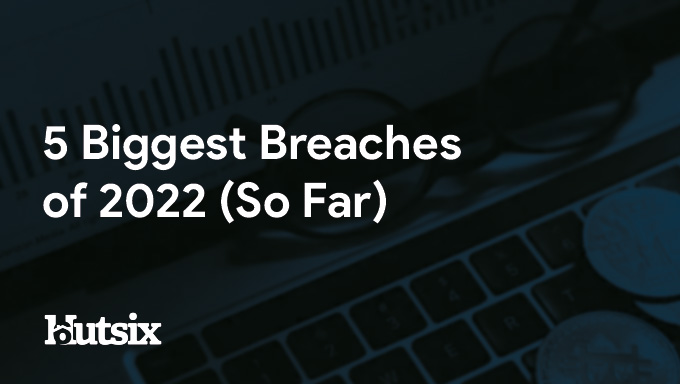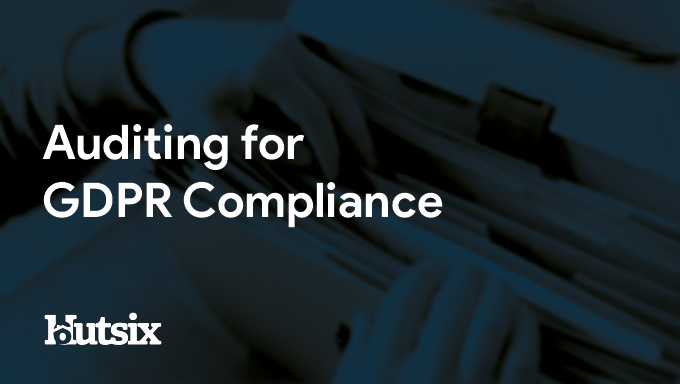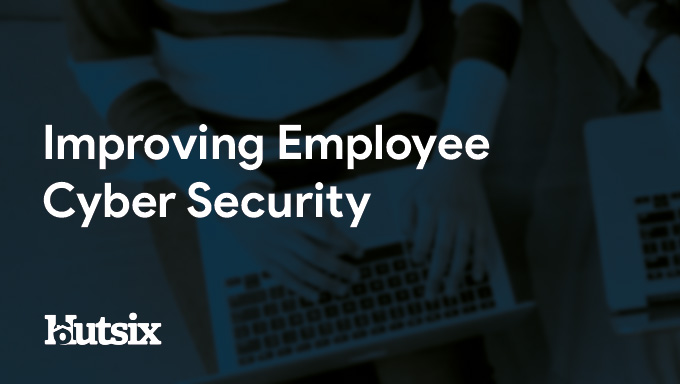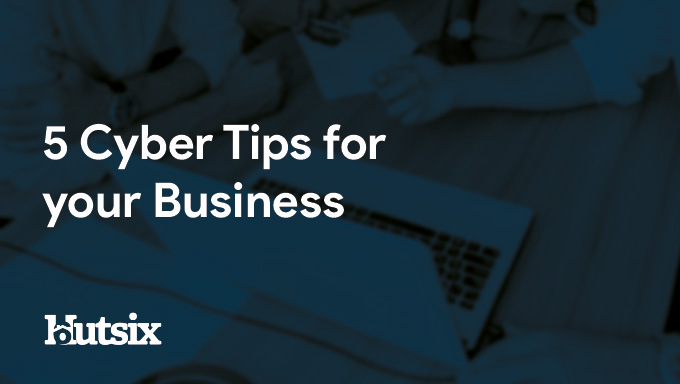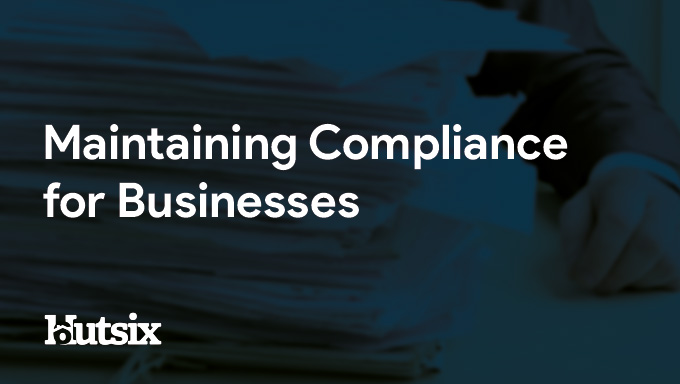A Guide to Types of Sensitive Information
What is Sensitive Information?
Sensitive information refers to confidential data that requires special handling due to the potential risks associated with its exposure. It encompasses a variety of types of information, such as personally identifiable information (PII), trade secrets, intellectual property, classified government documents, and even medical records.
In today's digital age, safeguarding sensitive information is crucial. Individuals and organisations alike must exercise caution when sharing, storing, and disposing of such information to maintain confidentiality, integrity, and privacy.
Ready to start your journey to becoming compliant?
We can help you - let's have a chat.
7 Types of Sensitive Information
As noted, sensitive information includes various types of data that require special care due to their confidential and potentially harmful nature if exposed. Each type of sensitive information listed below requires specific safeguards, such as encryption, access controls, secure storage, and restricted dissemination, to mitigate risks and protect confidentiality, integrity, and privacy.
- Personally Identifiable Information (PII): PII refers to any data that can identify an individual, such as their name, address, email address, date of birth, or financial information. This information is highly sensitive as it can be used for identity theft, fraud, or unauthorised access to personal accounts.
- Trade Secrets: Trade secrets are valuable, confidential business information that gives a company a competitive advantage. They can include manufacturing processes, formulas, customer lists, marketing strategies, or proprietary software. Unauthorised disclosure of trade secrets can harm a company's competitiveness and profitability.
- Intellectual Property (IP): Intellectual property refers to creations of the mind, such as inventions, designs, trademarks, copyrights, or patents. Safeguarding IP is crucial to prevent unauthorised use, reproduction, or exploitation by others, which can result in financial loss and infringement of rights.
- Financial Information: This includes sensitive financial data like bank account details, credit card numbers, transaction history, and investment records. Unauthorised access to financial information can lead to identity theft, fraud, or unauthorised transactions.
- Medical Records: Medical records contain private information about an individual's health, including diagnoses, treatments, medications, and insurance details. Protecting medical records is essential to ensure patient privacy, prevent medical identity theft, and comply with healthcare regulations.
- Legal Case Details: Information related to legal cases, including court documents, pleadings, depositions, and sensitive legal strategies, must be kept confidential to maintain legal professional privilege (LPP), protect sensitive information related to ongoing investigations, and ensure a fair legal process.
- Classified Government Documents: Classified documents include national security information, sensitive government operations, military intelligence, or diplomatic communications. Unauthorised disclosure of classified information can have severe consequences for national security, international relations, and individual safety.
If you'd like to find out more about handling sensitive information, check out our blog: How to Safely and Securely Handle Sensitive Information at Work
Protecting Sensitive Information
Protecting sensitive information is of utmost importance due to several compelling reasons. Firstly, it upholds privacy as a fundamental right and ethical responsibility, ensuring that individuals' personal lives and sensitive data remain confidential.
Secondly, safeguarding sensitive information, such as personally identifiable information (PII) and financial data, helps prevent identity theft and fraud, which can cause significant harm to individuals and organisations alike.
Protecting sensitive business information, such as trade secrets and intellectual property (IP), is also essential for maintaining competitiveness and innovation, as exposure can lead to financial losses and erosion of market advantage.
Furthermore, unauthorised disclosure of sensitive information can result in severe financial loss and reputation damage. Organisations may face legal liabilities, regulatory penalties, loss of customer trust, and negative public perception.
Additionally, compliance with laws and regulations regarding data protection and privacy is crucial. Failure to comply can result in legal consequences, and, in the case of the General Data Protection Regulation (GDPR) fines of 20 million Euros or 4% of the total annual worldwide turnover in the preceding financial year, whichever is higher,
Lastly, in the case of classified government documents and national security information, protecting sensitive information is vital to maintaining the safety and security of a country. Unauthorised disclosure can compromise national security, intelligence operations, and international relations.
By implementing robust security measures and adhering to best practices, individuals and organisations can mitigate risks and preserve the confidentiality, integrity, and privacy of sensitive information.
Sensitive Information and Employee Training
Below are Hut Six's top five reasons to provide your employees with effective training on how to handle sensitive information:
Awareness of Risks: Training sessions help employees understand the potential risks associated with sensitive information and the potential consequences of mishandling it. This awareness raises their sense of responsibility and encourages them to be more cautious and vigilant in their actions.
Compliance with Policies and Regulations: Training ensures that employees are familiar with organisational policies, industry regulations, and legal requirements related to sensitive information; learning about data protection standards, confidentiality obligations, secure handling procedures, and the consequences of non-compliance.
Best Practices and Security Measures: Training equips employees with knowledge of best practices for handling sensitive information. This includes understanding the importance of strong passwords, encryption, secure file sharing, secure disposal methods, and safe communication channels. Again, learning how to identify and report potential security threats or breaches.
Privacy and Customer Trust: Training emphasizes the importance of respecting privacy and maintaining customer trust. Employees learn the significance of handling sensitive information with care, ensuring proper consent, and respecting data subject rights. All of which fosters a culture of privacy and helps strengthens an organisation's reputation.
Incident Response and Reporting: Training equips employees with knowledge of incident response protocols and reporting procedures in the event of a data breach or security incident. They learn how to promptly escalate issues, minimising the potential impact and facilitating timely remediation.
Training employees on handling sensitive information promotes a culture of security, privacy, and compliance within an organisation, empowering employees to play an active role in protecting sensitive information, reducing the likelihood of data breaches, and safeguarding reputation and customer trust.
Security Awareness for your Organisation
Enjoyed our blog? Learn more about how Hut Six can help improve you security awareness with training and simulated phishing. Start a free trial now, or book a meeting with one of our experts.
Featured
Who Does GDPR Apply To?
Who Does GDPR Apply To? And Other Data Protection Questions/ Information Security blog by Information security awareness provider Hut Six Security.
Does ChatGPT Pose a Cybersecurity Risk
In this blog post, we explore whether AI chatbots like ChatGPT pose a cybersecurity risk. We delve into the potential vulnerabilities and threats posed by chatbots, and discuss measures that can be taken to mitigate these risks. Read on to discover how you can ensure the security of your organisation's chatbot interactions.
How Do I Get Cyber Essentials Certified?
Learn how to obtain Cyber Essentials certification and enhance your organization's cybersecurity posture with our comprehensive guide. Our expert insights will help you navigate the certification process to meet the requirements for Cyber Essentials.
Essential Steps for Security Awareness Training
Starting a security awareness training campaign? Here are 5 essential steps to help ensure information security success.
Malicious Insider Threats - Meaning & Examples
Malicious insider threats can cause massive problems. Here we examine some of the motivations behind attacks and methods of detection organisations can use to reduce risk.
5 Biggest Breaches of 2022 (So Far)
Five of the biggest and most significant data breaches, hacks, and information security attacks of 2022 (so far).
Auditing for GDPR Compliance
Questions to consider when auditing your business or SME for General Data Protection Regulation (GDPR) compliance.
Improving Employee Cyber Security
With human error responsible for many breaches and attacks, we offer some helpful areas for improving employee security compliance.
5 Cyber Tips for your Business
Essential cyber tips for helping your business or SME improve information and cyber security.
The Benefits Of Maintaining Compliance For Your Business
By maintaining compliance for your business you can ensure operational efficiency, reduce financial risk, enhance public trust, engage your employees and realise your mission.



